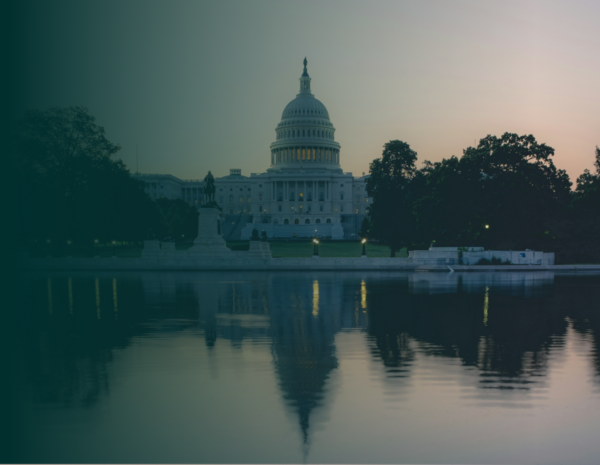In today’s global landscape, political risk has become unavoidable. Businesses, organizations, policy advocates, and stakeholders all assume some level of political risk. From sudden policy shifts to geopolitical tensions, the political climate can significantly impact operations and profitability, and cause unintended harm to stakeholder communities regardless of their size or industry.
In this blog, we explore the nuances of political risk management. Read on to learn strategies for effective mitigation.
Understanding Political Risk
Political risk is the potential impact of political decisions, events, or conditions on an organization’s operational, financial, and social environmental initiative performances. These risks can arise from a variety of sources.
Regulatory Changes
Governments may enact new laws or regulations that affect businesses. This includes tax reforms, trade policies, or environmental standards. Often, these changes occur swiftly during a specific political event. Reacting effectively will make an immense difference.
Geopolitical Tensions
Conflicts between nations or regions have varied consequences. Geopolitical tensions can:
- Disrupt supply chains
- Develop strains on essential services
- Increase operational costs
- Threaten the safety of personnel and assets.
In today’s conflict-heavy world, encountering geopolitical tensions is not uncommon. Be sure to equip your team to navigate conflict and difficulty with care.
Social Unrest
Civil unrest, protests, or strikes are essential aspects of a functioning democracy. They can also invoke political risk if handled incorrectly. Having a plan to coordinate around these events, or even support them, is essential.
Policy Instability
Uncertainty surrounding government policies and changes is yet another form of political risk. These complex dynamics can create volatility in financial markets, deterring investment. In 2024, the United States is in the midst of a significant electoral shift. A contentious presidential race and many other important issues are dominating political discourse. Understanding what the different political outcomes could mean for your organization is essential. This analysis will continue to serve your organization’s operations.
The Significance of Political Risk Management
Managing political risk is essential. Doing so helps to safeguard the interests of workers, organizations, and missions. It also helps ensure your organizations’ long-term sustainability. By identifying and mitigating potential risks, companies can:
Protect Assets and Investments
Understanding the political landscape of the regions in which you operate is essential. This knowledge can help protect assets and investments. It can also enable your organization to take steps to protect workers’ rights, personal assets, intellectual property, and investments from political upheavals.
Maintain Operational Continuity
Setting up systems to maintain continuity is a key step in mitigating political risk. Developing contingency plans and diversifying supply chains can help your organization minimize operational disruptions caused by political events. When political issues come to a head, your organization will still be able to provide services, work, and products.
Enhance Strategic Decision-Making
Incorporating political risk analysis into strategic decision-making processes is essential. By doing so, your organization will be able to make informed choices about market entry, expansion, and resource allocation.
Safeguard Reputational Capital
Proactively addressing political risks demonstrates a commitment to democracy, responsibility, and stakeholder interests. Effective political risk management safeguards your company’s mission and identity.
Strategies for Effective Political Risk Management
Political risk cannot be fully eliminated. However, organizations can adopt various strategies to mitigate their impact and build resilience. These include:
Conducting Risk Assessments
Conducting a comprehensive risk assessment is key to effective political risk management. Thoroughly analyze relevant political, economic, social, and regulatory factors. Be sure to review the elected officials who serve the jurisdiction(s) you operate in. When identifying legislators, be sure to understand their policy goals. Identifying those who represent your mission and vision can serve your organization well. Finally, assess the current social, economic, and regulatory issues. These issues may serve as opportunities or challenges for your organization.
Monitoring Political Developments
Staying informed helps organizations anticipate the political changes that may pose risks. Monitor political developments and geopolitical trends through reputable sources. These might include government publications, think tanks, and industry reports. With Plural, you can receive real-time alerts on crucial legislation. Plural’s Momentum Indicator also identifies bills that are likely to come up for a vote before the end of the session. Anticipating potential political changes allows your organization to adjust its strategies accordingly.
Diversifying Operations and Supply Chains
Diversifying your organization’s operations and supply chains ensures adaptability. Reduce reliance on single markets or suppliers by diversifying operations and supply chains. Ensuring representation across multiple regions and business sizes is key to political risk management. This approach minimizes the risk of disruptions and creates equitable supply chains.
Engaging With Local Stakeholders
The findings from risk assessments will inform how you engage with local stakeholders. Key stakeholders might include local governments, communities, and industry associations. Building solid relationships can provide valuable insights into the region’s political landscape. These relationships can help your organization facilitate dialogue at times of political uncertainty.
Plural makes it easy to discover legislator and staffer contact information. Once you’ve identified who to engage with, use Plural’s Workspaces as an all-in-one organizational tool. Workspaces store meeting notes, key bills, uploaded files, and more.
Developing Contingency Plans
Despite best laid plans, political risk management can still go awry. Develop contingency plans outlining response strategies for:
- Various political scenarios
- Public health crises
- Support of mission-driven protests
- Trade disputes
These plans should be regularly reviewed and updated to remain effective.
Cultivate Organizational Resilience
As mentioned, risks and challenges may still persist despite effective management. Foster a culture of adaptability and resilience within your organization. Be sure to encourage innovation, flexibility, and open communication. Further, empower employees to respond effectively to unexpected political challenges.
Navigating Uncertainty With Effective Political Risk Management
In our interconnected world, political risk has emerged as a critical consideration. Policy advocates, organizations, and businesses aiming to thrive in global markets should all engage in risk management. By understanding the nature of risk and implementing management strategies, organizations can navigate uncertainty with confidence and resilience.
Get Started With Plural for Political Risk Management
Top multinational organizations trust Plural to serve their political risk management needs. With Plural, you’ll:
- Access superior public policy data
- Be the first to know about new bills and changes in bill status
- Streamline your day with seamless organization features
- Harness the power of time-saving AI tools to gain insights into individual bills and the entire legislative landscape
- Keep everyone on the same page with internal collaboration and external reporting all in one place
Interested in learning how Plural can serve the needs of your organization? Book a demo today!
More Resources for Public Policy Teams
Key Benefits of AI for Lobbying & Advocacy
Want to be able to explain the benefits of artificial intelligence for lobbying and advocacy? Everyone is talking about AI. And we get it, it’s not simple to understand. But as an AI-powered organization, Plural is here to help you get the most out of advancements in AI to make your job as a policy […]
2025 Legislative Committee Deadlines Calendar
Staying on top of key deadlines is manageable in one state, but if you’re tracking bills across multiple states, or nationwide, it quickly becomes overwhelming. That’s why we created the 2025 Legislative Committee Deadlines Calendar. Stay ahead of important dates and download our calendar today. Get started with Plural. Plural helps top public policy teams get […]
End of Session Report: Florida 2024 Legislative Session
The 2024 Florida legislative session saw significant activity in the realm of insurance and financial services, reflecting key themes of consumer protection, market stability, and regulatory modernization.




